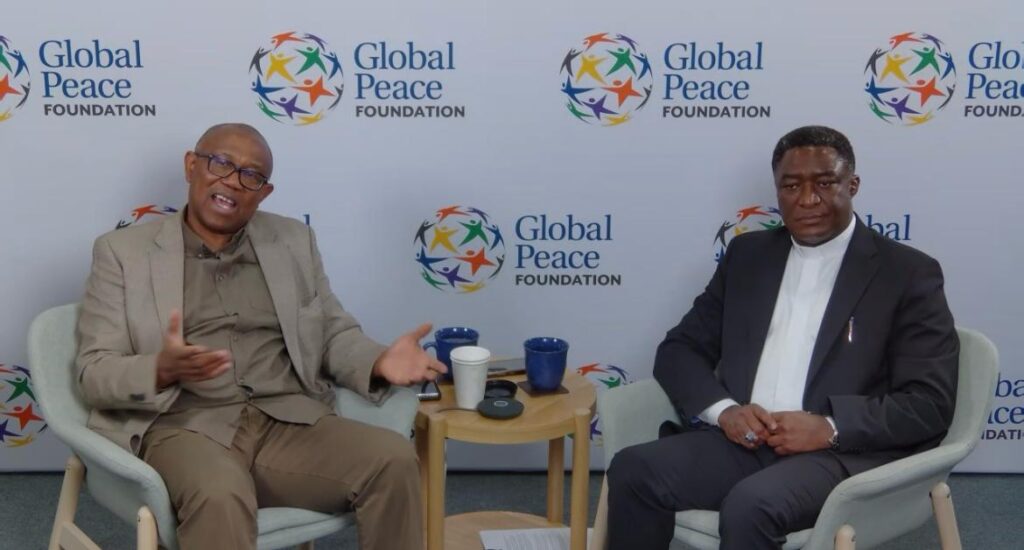
Washington D.C., 5th October2025] – In a powerful and widely attended virtual webinar hosted by the Global Peace Foundation, His Excellency Peter Obi, former Presidential candidate in Nigeria, delivered a compelling address on the urgent need for ethical leadership and youth empowerment to unlock Africa’s vast potential. The event, titled “Ethical Leadership and Empowering Youth,” was hosted by Fr. Canice Enyiaka, Director of Africa Peace Initiatives at the Global Peace Foundation, and drew over 500 young participants from across the globe.
Mr. Obi’s discourse, facilitated by Fr. Enyiaka, centered on the foundational principle of prioritizing human dignity in governance. He argued that Africa’s greatest asset is not its natural resources, but its human capital, and that leaders must fundamentally reorient their priorities to reflect this.
“Leaders must prioritize human capital as the greatest asset for dignified leadership,” an opening speaker affirmed, setting the stage for a conversation that would repeatedly return to the value of people over politics.
Ubuntu as a Guiding Philosophy
A significant portion of the dialogue was dedicated to revitalizing African cultural values as a blueprint for progress. Mr. Peter Obi highlighted the philosophy of Ubuntu—the concept that our humanity is intertwined—as critical for the continent’s renaissance.
“Ubuntu is the essence of being human, interconnectedness, and giving for the good of the community,” he explained. He detailed how applying this value to public policy could combat corruption and foster a more dignified and cohesive society, moving away from what he described as a corrosive focus on consumption.
Unlocking Potential through Education and Entrepreneurship
The conversation seamlessly moved to practical solutions for Africa’s challenges, particularly poverty and joblessness. Mr. Obi asserted that the key to unlocking Africa’s potential lies in strategically unleashing its human capital through education and entrepreneurship.
“Africa’s potential lies in unleashing human capital, not consumption,” he stated, emphasizing that the continent must transition from a resource-based to a knowledge-based economy.
He called on African leaders to create an enabling environment that incentivizes Small and Medium-sized Enterprises (SMEs) and inspires young people to stay and build the continent. “African leaders should support young people to stay and build Africa through incentivizing SMEs,” he urged.
Directly addressing the youth, Mr. Obi emphasized that leadership must be held accountable. “Young people must advocate for good leadership and demand accountability to achieve good governance and reduce corruption in Africa,” he said, encouraging peaceful coalition-building to effect change.
A Call for Compassion and Accountability
In a session addressing questions from the global audience, the discussion deepened on the role of transparent governance in restoring hope. A participant, Alea Mohammed from Mauritius, asked about the specific role of ethical governance. In response, Mr. Obi and other speakers underscored that accountability and transparency are non-negotiable traits for effective leadership.
The event concluded with a resonant call for a new kind of leadership—one grounded in compassion, self-awareness, and a genuine care for the welfare of others.
“Leadership requires compassion, caring for others, and addressing societal issues,” a speaker noted, reinforcing the day’s central theme that to rehumanize society is to pave the way for genuine progress.
The Global Peace Foundation webinar, under the stewardship of Fr. Canice Enyiaka, served as a significant platform, amplifying a clear message to both current leaders and the future generation: Africa’s renaissance is imminent, but it hinges on ethical leadership that empowers its youth and is guided by the timeless principle of Ubuntu.



